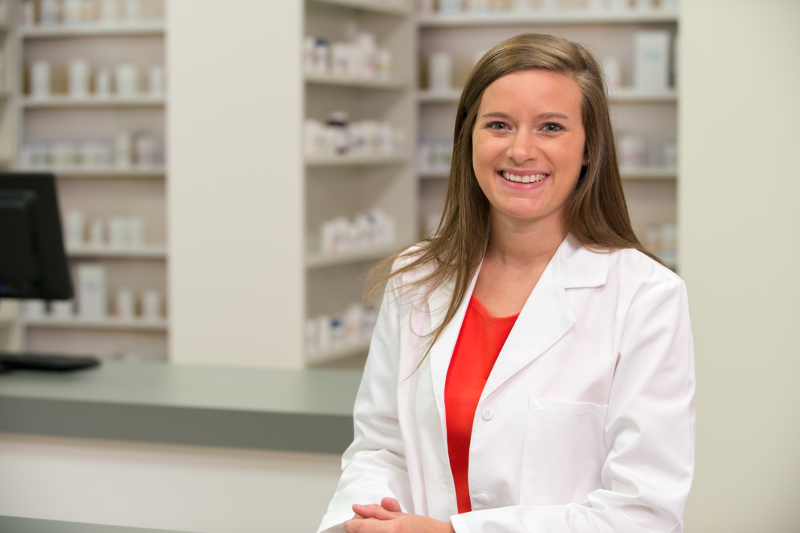Pharmacists: The Not-So-Secret Weapon to Improving Population Health

Although it may not be perfect, the United States health system is one of the best in the world when it comes to providing care to individual patients. Unfortunately, that does not translate to having a healthy population.
As a nation we rank thirty-seventh on the overall health of nations’ populations, according to a list produced by the World Health Association. The disparity between the two is a problem, especially since we spend more per capita on healthcare than any other nation.
But what if I told you we have an ace up our sleeve? What if there was a healthcare team member that is consistently ranked among the most trusted, honest and ethical professionals in the United States? What if this non-fiction superhero of a human receives arguably the most well-rounded training of any healthcare profession, and is by far the most accessible and approachable member the healthcare team?
Lucky for us, we have a secret weapon: the pharmacist.
Pharmacists: your local health and wellness expert
Pharmacists are experts at fostering population-based health and wellness through a suite of comprehensive services they can provide to patients. Apart from the essential activity of dispensing prescription medication, pharmacists are an easily accessible resource for health and medical knowledge. They counsel patients on drug information, disease management and also give behavioral and healthy lifestyle advice. Their contribution to disease prevention, health education and promotion and overall public health advocacy will continue to aid in accomplishing optimal health outcomes for patients. Additionally, there is a wealth of data that shows pharmacists can reduce medication errors, help reduce hospital readmissions, and provide the support patients need to follow through on their medication regimens.
“People continue to hold pharmacists in very high regard,” B. Douglas Hoey, RPh, MBA, CEO of the National Community Pharmacists Association (NCPA), said in a press release referencing the 2016 Gallup poll on the most honest and ethical professionals in the United States. “It is time for payers and policymakers to better utilize the accessibility, expertise and public trust in pharmacists.”
Pharmacists work in a variety of settings, including community pharmacies, hospitals and clinics, grocery and retail stores and nursing homes. These convenient touch points create an opportunity for pharmacists to provide essential healthcare services and education to a significant amount of the population. From clinical services to medical expertise and everyday health and wellness tips, pharmacists — and their centralized placement in the community — are invaluable to public health.
Telepharmacy: Helping pharmacists improve public health
Retail telepharmacy, or remote dispensing, is a tool that empowers pharmacists to extend their reach and provide quality pharmaceutical care in areas where patients wouldn’t typically have local access to a pharmacist. As a means to help improve population health in medically underserved areas, remote dispensing allows healthcare organizations to provide more convenient access to the expertise of a pharmacist (and the pharmacy) at the local level.
Access to pharmacists is convenient for some patients, but not for all. Independent pharmacists continue to provide vital services to very rural areas, and collectively, over 80 percent of independent pharmacies are serving areas with a population less than 50,000, as reported by the NCPA Digest. But what about the millions of patients living in remote towns far removed from the nearest pharmacy? That’s where telepharmacy comes in.
Telepharmacy helps fill a void related to access to care and prevention. Inserting a pharmacist into an underserved community through remote telepharmacy software can positively influence health outcomes and healthy lifestyle changes. The services a pharmacist can provide, including pharmacists-led medication management strategies and OTC consultations, can also help patients get better quicker and live healthier lives. Telepharmacy in the community or outpatient setting is gaining traction in America. It’s proving to be an ace in the hole for pharmacists and organizations interested in providing expert pharmaceutical care to a greater population.
Pharmacists: Here’s what you can do to help improve public health
Getting involved in the public health community
No matter the setting, pharmacists are central to the overall health of a community. They keep their finger on the pulse to monitor a community’s health status and can mobilize and empower community members and public-health partners through education, screening and dissemination of information. Examples of this include offering expertise to community groups, speaking out about drug abuse and/or providing hypertension screening in the community pharmacy. Pharmacists can also take on a macro-type role and become the drug program administrator of a state Medicaid program. The public health role of the pharmacist is yet to be clearly defined or even widely promoted, but other than effort, it doesn’t take much to become a public health champion.
Disease prevention
Disease prevention, a priority in pharmaceutical care, can be done at the community level through the provision of immunizations, counseling on tobacco cessation, substance abuse education and medication therapy management (MTM) programs that ensure safe and effective medication use. Pharmacist-initiated activities also encourage healthy lifestyle behaviors and help prevent the risk and burden of disease and/or injury.
Additionally, there are plenty of things pharmacists can do to help transform the pharmacy into a community health hub.
Improving population health in America requires a fundamental shift in approach, and pharmacists are well-equipped to play a pivotal role in doing just that. It first requires pharmacists and public-health advocates to refocus health and wellness efforts on the entire population, not just already established patients.
We hope this has been an inspiring read. Are you doing anything special to celebrate National Public Health Week or World Health Day?





